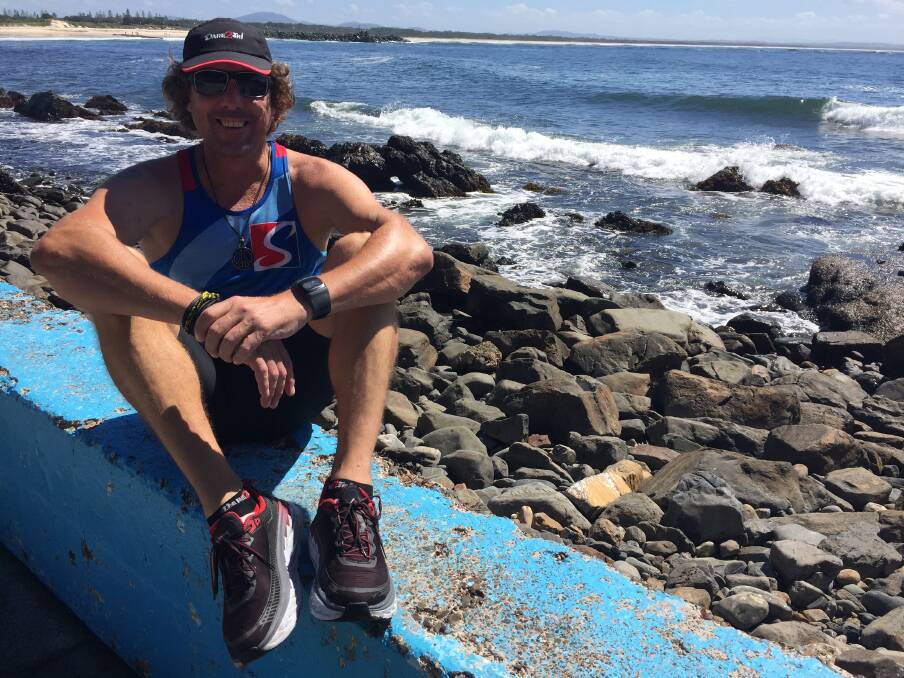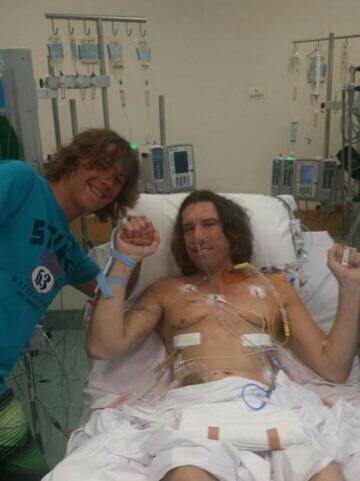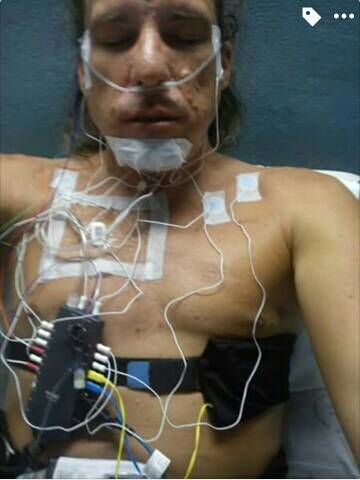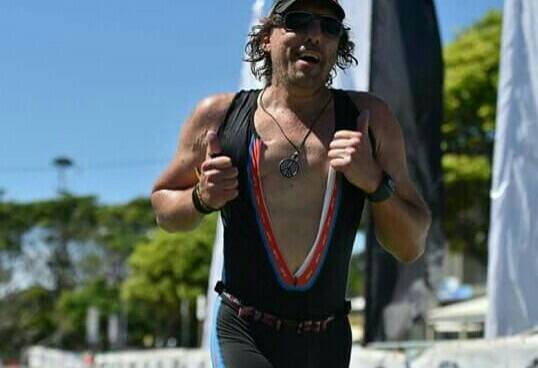
He is a walking (swimming and cycling) miracle who has stared down the face of death on more than one occasion.
Subscribe now for unlimited access.
$0/
(min cost $0)
or signup to continue reading
Yet, Rod Marshdale continues full speed ahead, thanks to a new set of lungs and a tremendous zest and enthusiasm for life.
Rod was born with cystic fibrosis (CF), a condition which was passed on via his parents, unbeknown to them, who were both carriers of the condition.
As a result of CF – which primarily affects the lungs and digestive system – Rod has spent much of his 46 years in and out of hospitals.
But, that all changed in 2015 when Rod – following a couple of false starts – received a new set of lungs and a new lease on life.
Since then he has challenged both himself and life.
People are dying because there are not enough organs for transplant.
- Rod Marshdale
Eighteen months after the transplant Rod competed in the bi-annual Australian Transplant Games in Sydney winning one bronze and three silver medals in swimming, a result which earned him a place on the Australian swim team for the 2017 Transplant Games in Malaga, Spain.
He later gained a fifth in the finals of the 100 metres freestyle.
“My highlight was leading off the Australian men’s 4x50m freestyle relay where I swan a PB,” he said.
And, in March he competed, and more importantly completed in an Olympic distance triathlon event in Kingscliff, on the North Coast on the Sunshine Coast in a time of three hours and 36 minutes.
While Rod admits the time wasn’t great, he was thrilled he finished, albeit on a vintage bike wearing joggers and walking much of the 10km run leg due to a previous injury.
The main thing was my lungs didn’t hold me back, Rod said.
Later this month Rod will travel to Byron Bay to compete in a second triathlon.
When Rod was diagnosed with CF as a three-year-old back in the 1970s, the condition was considered a death sentence.

His distraught parents believed their son had at the most 10 years to live.
To give their son every chance of a (normal) life the family moved from their small farm outside Yanco, into Leeton
Living in town introduced Rod to many sporting opportunities; Modrules (Auskick), swimming in the irrigation channels, cycling and later AFL.
But, by the age of 14 Rod began to get serious lung infections, which meant long, lonely stays in Prince of Wales Hospital.
“I was so scared there, because that was where kids died,” he said.
“I really didn’t cope well, it was too confronting.”
But, he was in good hands, and was under the care of Professor John Beveridge (who was instrumental in the Sydney Children’s Hospital) well into his 30s.
Although Rod’s marriage didn’t last, it did give him two boys, Ben and Jesse, who have been with their dad every step of the way.
Both boys – at various stages – have been their dad’s primary carers, while Rod’s parents temporarily moved from their home to the Great Lakes to been near their son.

“Ben and Jesse kept me alive for the final two years leading up to my transplant doing two daily physio sessions of 40 minutes.
“They are true heroes.”
After moving from the Riverina in 1992 for a warmer, coastal environment, Rod established the Cafe Boat and was known as the ice cream man.
Rod was forced to give up full-time work after he began to have serious health issues, which were not related to his CF.

Today, Rod is healthy and preparing to travel overseas in July, spreading the important message of organ transplants and CF.
“People are dying because there are not enough organs for transplant,” Rod said.
He said research into CF was also underfunded.
“One in 2500 babies are born with CF.”
Rod urged everyone to sit down for just two minutes and register as an organ donor.
“And don’t forget to let your family know of your wishes,” he said.
www.donatelife.gov.au


